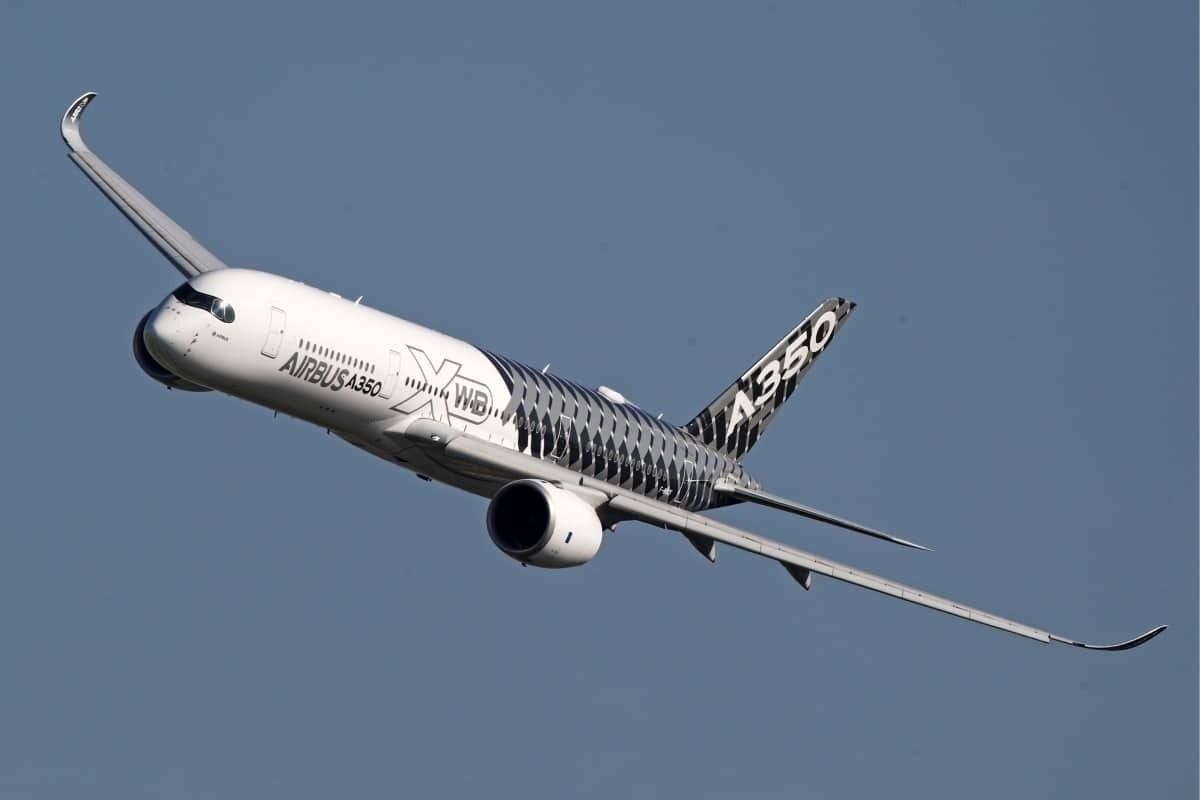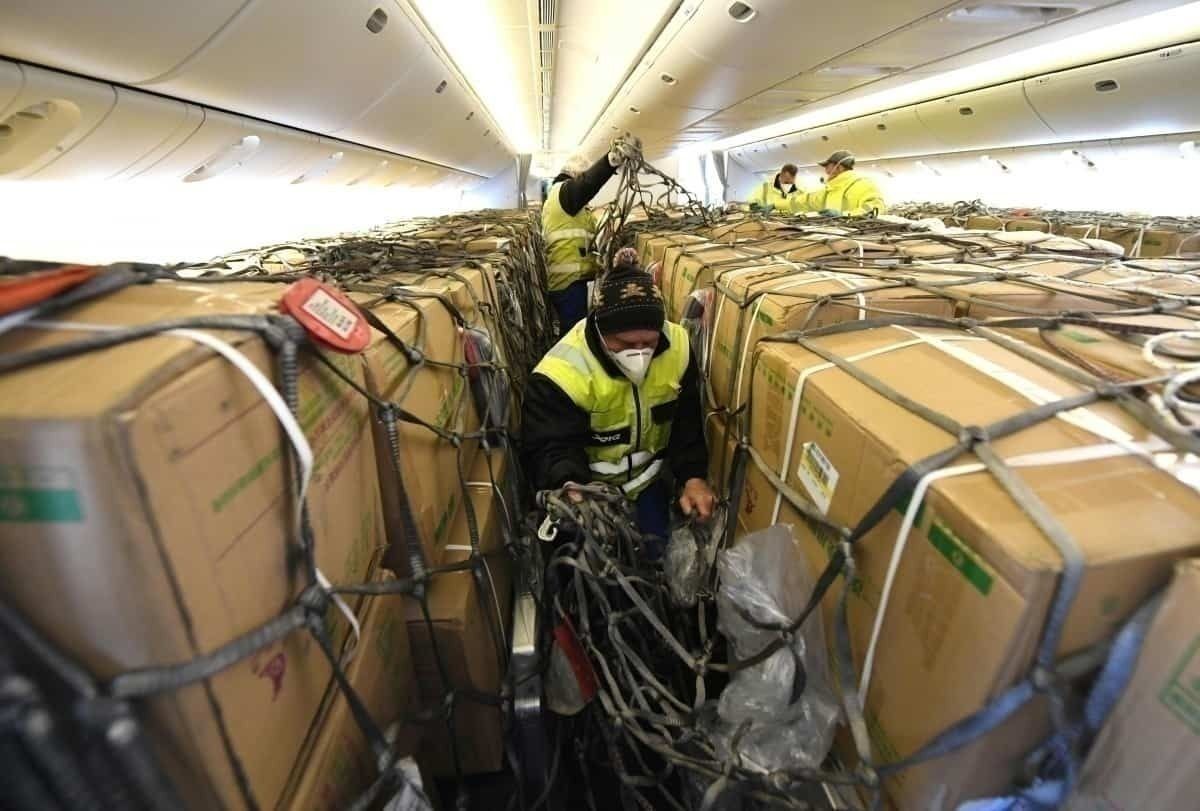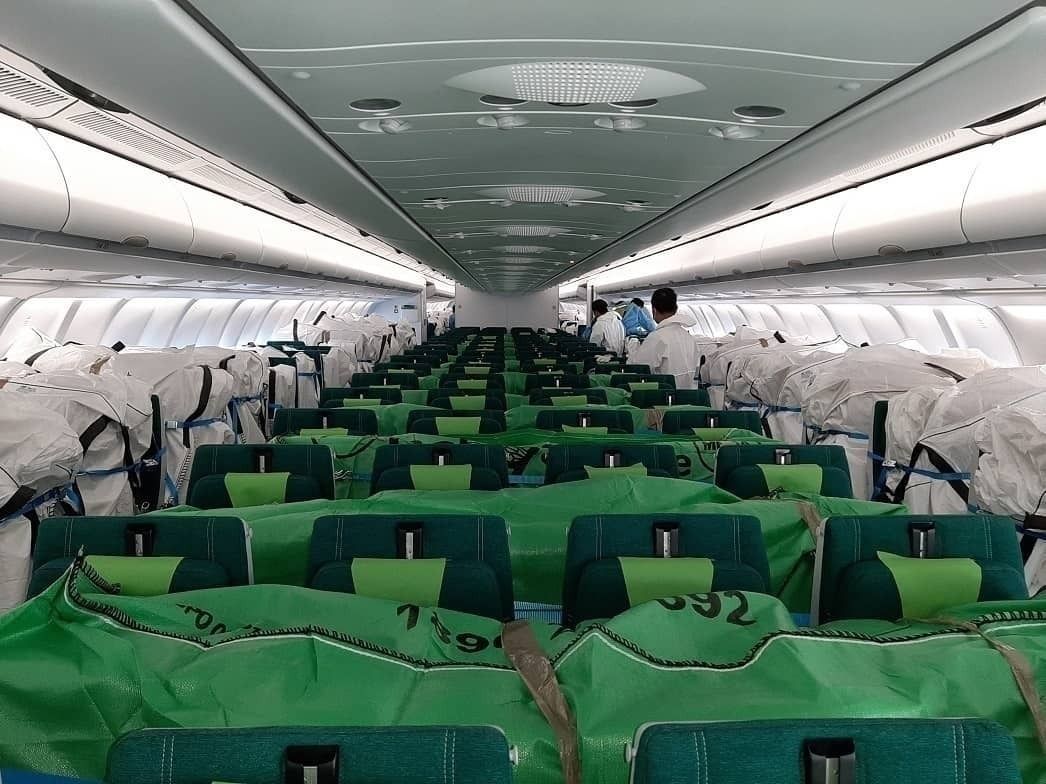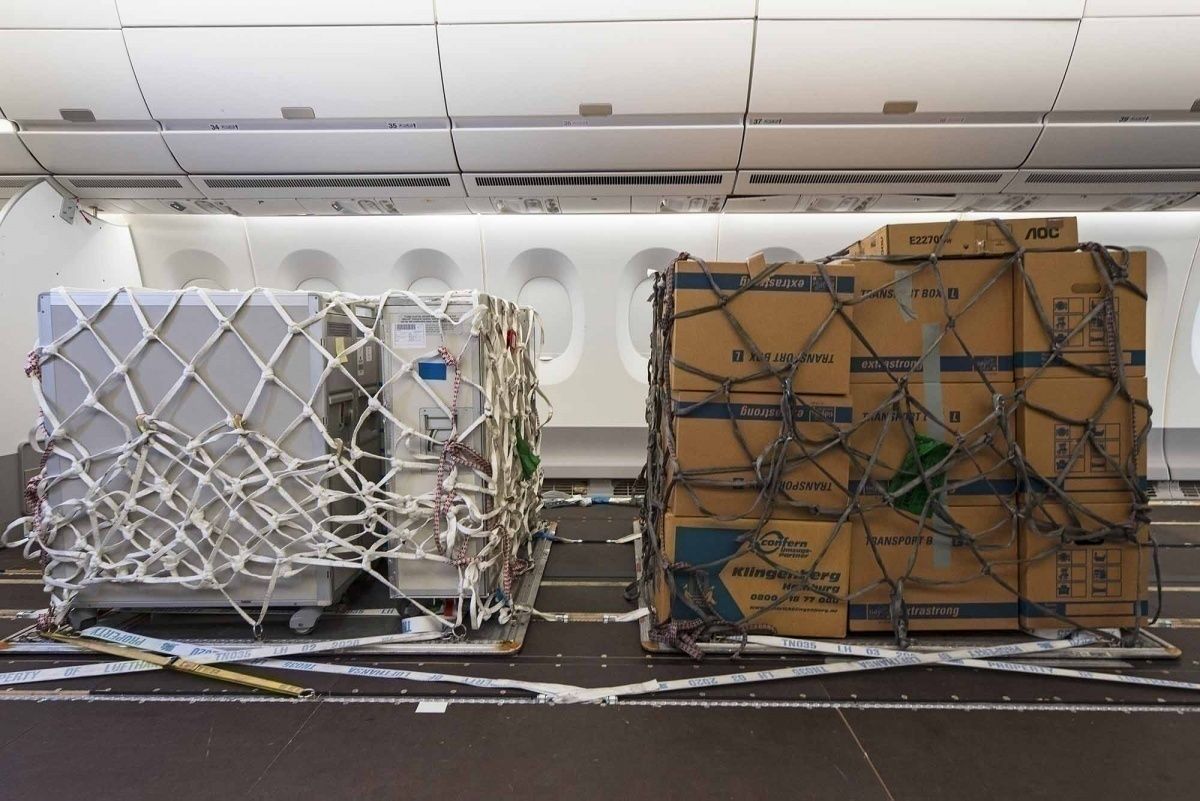Airbus has revealed a new solution to help airlines use existing widebody aircraft for cargo operations. The modification will allow passenger A330s and A350s to be used for freight, allowing airlines to utilize their grounded aircraft to generate revenue and keep the world supplied with much-needed goods.
Modifying the widebodies
According to an Airbus press release seen by Simple Flying, the manufacturer is offering users of its widebody aircraft the ability to easily remove passenger seats and install pallet carrying facilities in their place. The modification involves using the cabin floor seat tracks to accommodate freight pallets.
This will enable airlines to begin using the A350 and A330 as cargo aircraft in a much safer and more efficient manner than before. While some airlines have already been using the A350 as a cargo mover, most have been keeping the seats in place and simply stacking boxes on top.
Aer Lingus has also been using Airbus widebodies for cargo, flying several times a day between Dublin and Beijing to bring vital PPE to Ireland. In this case, its A330s utilized specially designed cargo seat bags to add capacity in the cabin of the aircraft and to allow it to transport goods safely.
Airbus’ development means the large cabins of these widebody aircraft will now be able to be maximized for cargo, letting airlines carry far more than was previously possible. Airbus has pushed through approval with the European Union Aviation Safety Agency (EASA) to allow airlines to make use of this modification right away.
EASA’s guidance sets out an exemption period of eight months to allow carriers to start using the widebodies for cargo as soon as possible.
The rising demand for cargo
With demand for air travel at an all-time low, airlines are increasingly turning to cargo operations, both to ensure the world remains supplied with goods and to generate a small amount of revenue in these difficult times. In many countries around the world, the bulk of imported goods by air arrive in the belly of passenger planes. With barely any passenger services operating, it’s crucial airlines can move cargo efficiently to keep the world supplied.
According to FlightGlobal, around 30 pallets can be accommodated in an A350, while 28 can be carried in an A330. As with any cargo operations, safety will be paramount, and airlines will be required to undertake stowage checks to ensure safe operations are maintained. These will include things like center of gravity assessments, evacuation criteria and fire protection.
To maintain safety, the EASA guidance states that multiple systems will need to be deactivated on the aircraft, particularly those that can generate heat. This may include inflight entertainment systems, galley equipment and in-seat power outlets. Cabin crew will also be expected to accompany the cargo, performing regular walkarounds to ensure safe carriage.
Converted in a couple of days
Airbus test pilot and vice-president of flight operations support Yann Lardet spoke to FlightGlobal about the development, noting that Airbus is looking to take care of all the EASA communications to ensure regulatory processes do not burden airlines. He stated that the temporary conversion could see a passenger plane ready to carry cargo in just a couple of days.
While this is being implemented to relieve the global need for cargo services right now, it could be a telling sign of Airbus beginning to look at the A350F for the future.





